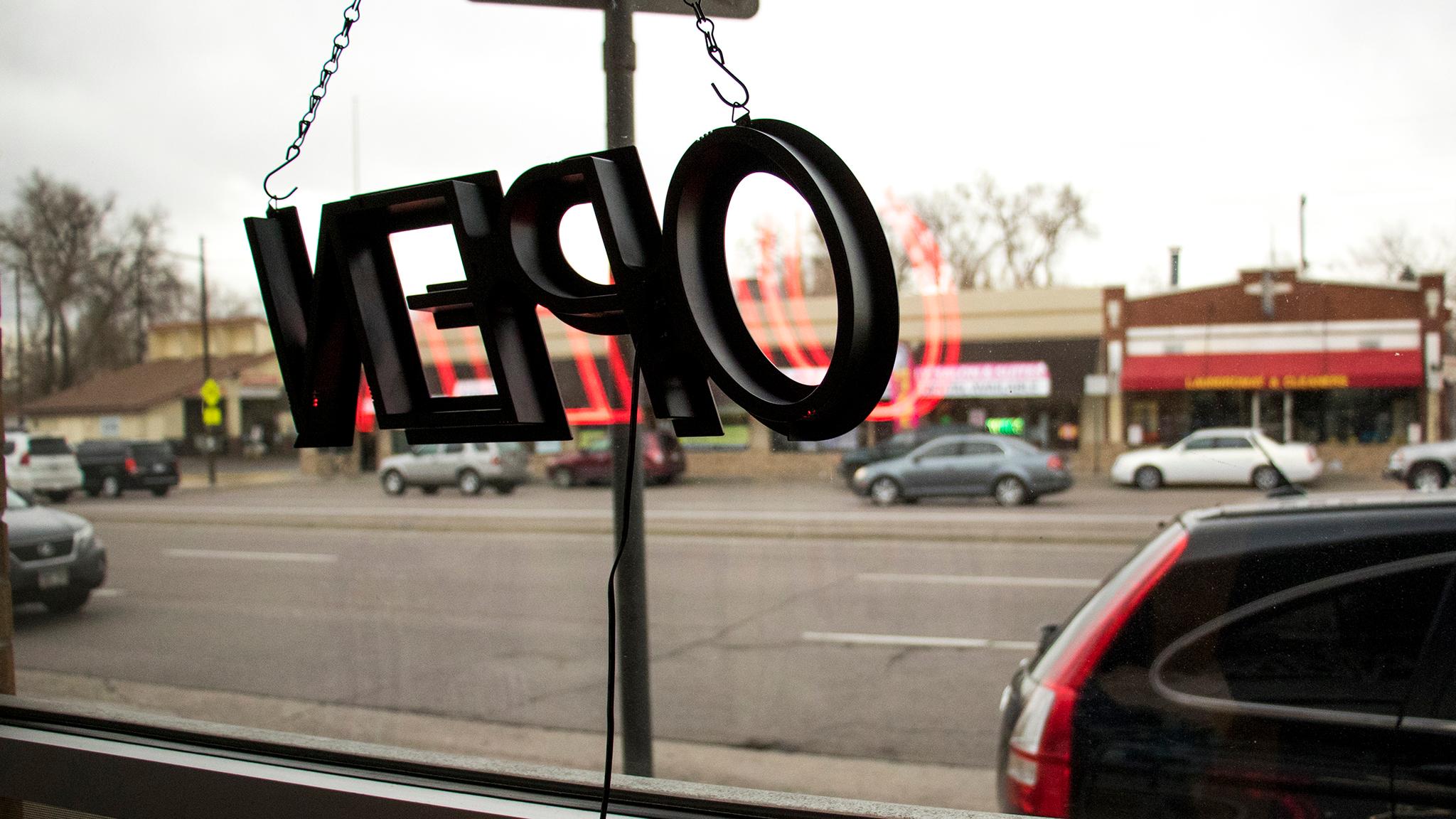Cora Faye's legendary soul food restaurant moved away from its longtime home on 29th and Colorado Boulevard for greener pastures in Aurora back in July of 2016.
And according to the restaurant's former neighbor and longtime barber Steve Williams, it wasn't an isolated incident.
In fact, Williams says Cora Faye's relocation was emblematic of the large turnover of businesses on the block he's worked on for more than 15 years. He says his business, Exclusive Cuts, which is across the street from where the restaurant used to be, will be moving shop soon for the same reason so many others have left: overwhelming rent hikes.
"They just out pricing us right now, you know what I mean? When we first started over here, it was like $600 back in the day, 15 years ago, and now it's moved up every year," Williams said.
He says rent prices have gone up nearly $1,000 during his time on the strip.
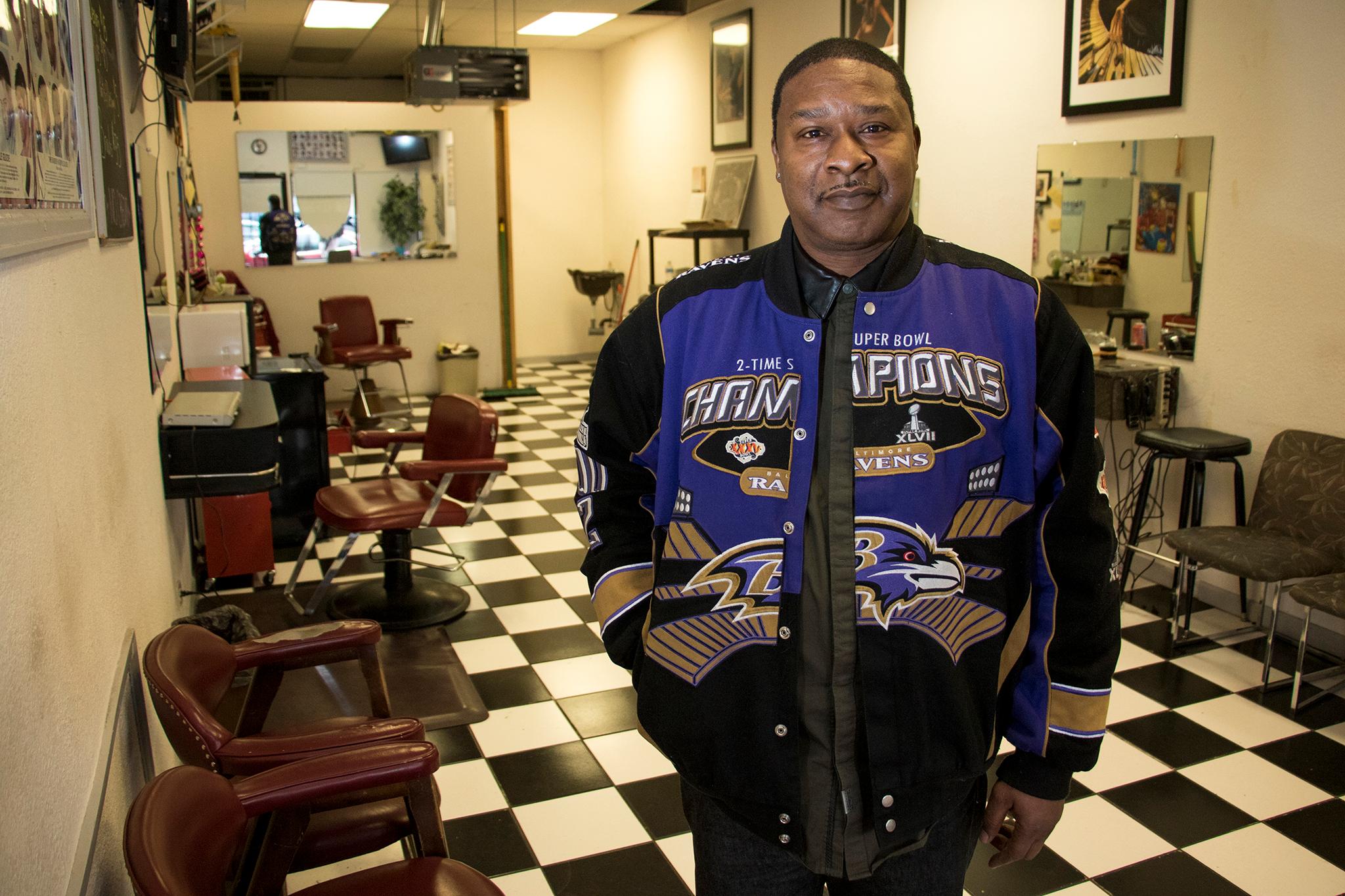
Unlike Cora Faye's, which moved all the way to 16251 E. Colfax Ave. in Aurora, Exclusive Cuts will stay in Denver. This January, it will reopen on Bruce Randolph Avenue and Columbine Street.
I spoke with Shavon Glasper, as she left the Colorado Boulevard Laundromat that has been there as long as anyone could remember. According to Denver's property records, the building has had the same ownership since 1993. Glasper has lived in the neighborhood her entire life and says it's been tough to watch some of her old favorites leave but hopes the changes will help bring in new and more diverse businesses.
"I haven't really been to many of the new businesses, but I did hate to see Cora Faye's leave and stuff like that. Restaurants would be good, small businesses probably coming back, you know, just small owners," Glasper said.
Chain franchises occupy three corners of the block, including a KFC-Taco Bell and an O'Reilly's Auto Parts on the west side and a Grease Monkey and a host of discount appliance stores on the east side.
Connie Lee, owner of Sugar Rush doughnuts, which came to the area several months ago, says the neighbors have been really receptive of her shop because some of them were previously traveling up to 30 minutes just to get a good doughnut. She thinks the heavy traffic in the area works in the store's favor but would like to see more local businesses, especially the types that drive foot traffic like restaurants.
"If it was just a little revamped, that would really help out the neighborhood," Lee said.
She says a new look, including new local store fronts, could enhance the aesthetic of the area, getting away from the transient feel chain auto garages and fast food restaurants give the block currently.
Williams says he thought the strip was at its best when it was lined was a plethora of small businesses that reflected the needs of the surrounding community.
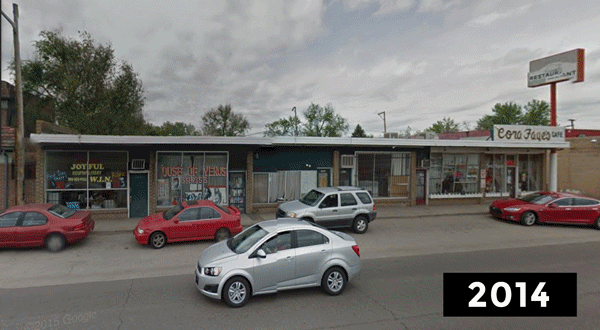
"I liked it when it was mostly black-owned businesses. That's what I would want it to be. Horns [soul food restaurant] was black-owned, Cora Faye's was black-owned. You had the barbershop across the street, they were black-owned. You had the guy that was doing upholstery, that was black-owned. So, all those guys are gone now," Williams said.
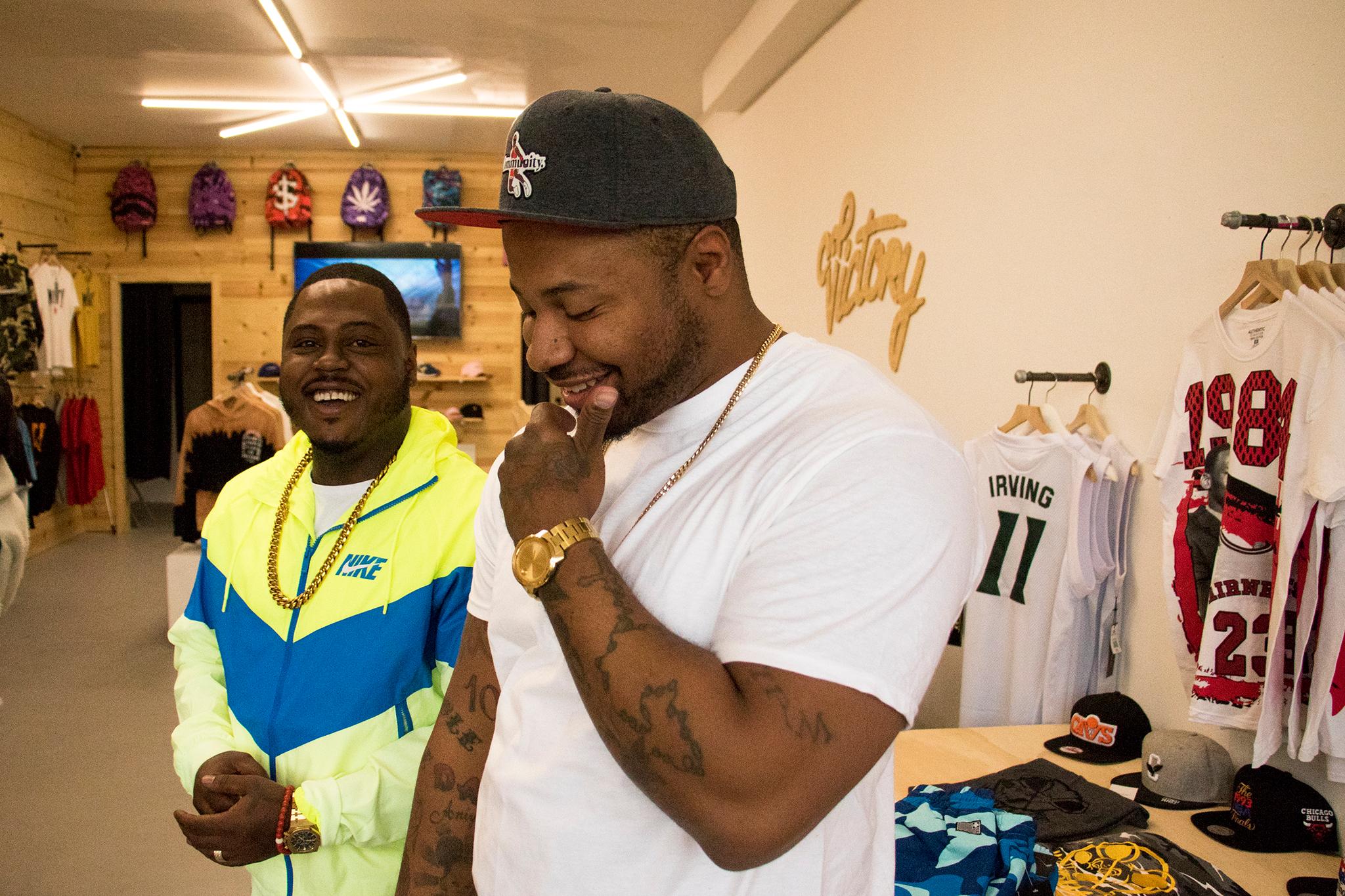
Jarret Beasley chose to open his store, Victory Clothing, on the block to bring back the vibe Williams feels is missing.
"I just wanted to have a business in the community I grew up in. With gentrification and people being pushed out east towards Green Valley and Aurora and stuff, I wanted to have a business in the community that's traditionally been black," Beasley said.
He too feels like "more business, more black business and local small businesses instead of just chains" would be good for the area.
This has a name: retail gentrification.
Carrie Makarewicz, a professor in urban planning at the University of Colorado Denver, says research coming from experts in the emerging study of "retail gentrification" could potentially validate Beasley's hunches about the effect small businesses would have in the area.
"They've studied the value of locally owned businesses versus headquartered or franchised businesses. Through economic analysis [we found that] local business puts more money back into the local economy, even if it's at a smaller scale," Makarewicz said.
Makarewicz had previously done some work in Chicago with a primarily Swedish neighborhood where they were trying to keep sweeping changes to the character of the neighborhood at bay. Makarewicz noted that Chicago had considered passing something similar to the Formula Retail ordinance in San Francisco. Back in 2006, the small business districts in Chicago were proposing a zoning overlay or some other mechanism that business districts could adopt.
But without any type of restrictive of legislation, Beasley doesn't know if a great return of small business is possible.
"With the rising cost of this neighborhood, I don't know, I doubt it. That's just being honest," Beasley said.
He says with prices continuing to rise, the strip could see a similar story to that of Welton Street, where people buy properties at low values and later others aren't able to purchase because prices have inflated so much.
Makarewicz noted that concerned residents may be able to take cues from cities like San Francisco. Residents have recently taken on the problem of "legacy businesses" being priced out and have just moved to provide financial support to keep those establishments in place.
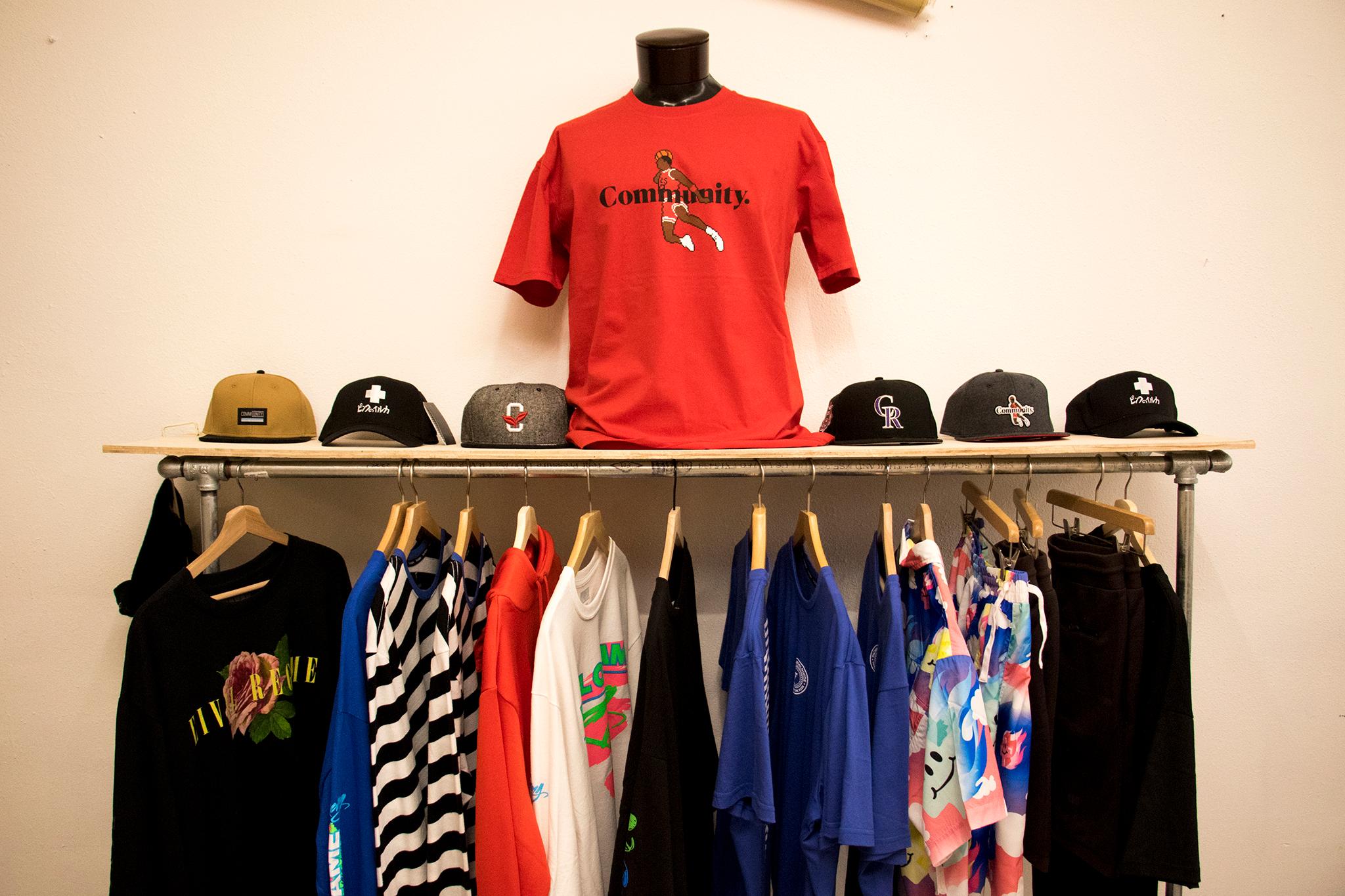
While far from being a legacy business, as it's in its second year, Victory Clothing does its best to promote and thus sustain local businesses. They sell local brands and provide space for events. Beasly knows that his store caters to younger people, as evidenced by the clothing selection and Sauce Walka playing in the room, so he would like to see other local businesses provide things the neighborhood needs, like food and family needs.
He noted that it was unfortunate to see the next door Mini-Market, which was black-owned, close down, because it helped cater to the needs of the entire area.
Correction: This article previously mischaracterized retail ordinances in Chicago. It has been updated.
A source has been removed from this story.

